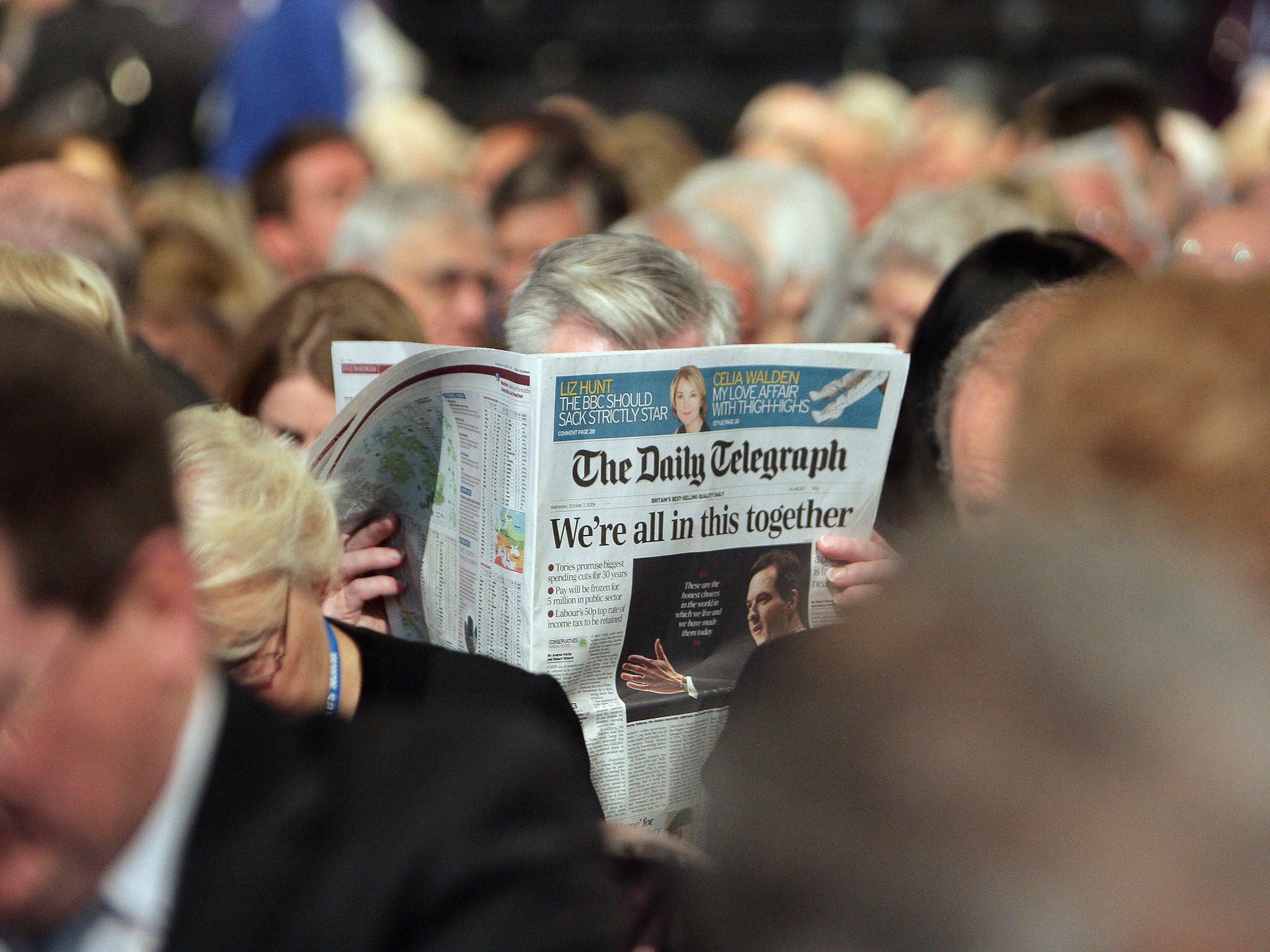The Telegraph only has itself to blame
Instead of investigating, the paper lashed out hysterically

If any retired colonels in the shires remain loyal to The Telegraph, they will be looking aghast at the strategic catastrophe of the paper’s unseemly skirmishes with its media rivals this week.
Britain’s biggest-selling serious newspaper’s reputation has suffered lasting damage. Its response to accusations that it compromised editorial coverage of HSBC to protect a premium advertiser was so impetuous that it calls into question the judgement of the Telegraph leadership.
Having issued a blunt denial of the HSBC claims made by its former columnist Peter Oborne, the paper could have won back kudos with investigative journalism of its own. Instead, the paper hysterically lashed out at The Guardian and at News UK, which publishes The Times. Its actions appeared like desperation.
Why is such a powerful organisation behaving like cornered quarry? With nearly 500 editorial staff having been fired in eight culls since 2005, it has many enemies. Many now work for other media organisations. Buzzfeed UK, one of the louder voices in the clamour of disapproval about The Telegraph this week, has several refugees in its ranks.
Oborne is a both trusted and popular journalist. When he published his revelations on the openDemocracy website, they were taken seriously. As he gave a series of interviews, he showed himself a more effective communicator than The Telegraph, which responded with dirty work in its own columns. These hatchet jobs carried an anonymous staff reporter byline and appeared to be based on information from The Telegraph’s commercial team, rather making Oborne’s point.
The HSBC allegations have grown into the most serious media battle since the phone-hacking scandal. After the Leveson inquiry, the Telegraph Media Group was at the heart of the newspaper industry’s attempt to present a unified response to the judge’s report. At the end of the hacking trial, it backed News UK in questioning the prosecution. Suddenly, it looks isolated as never before.
The Telegraph’s apparently irrational behaviour, more than anything else, smacks of commercial pressure, which sources suggest could stem from the fact that TMG failed in 2014 to match the £60m profits of the previous year.
Oborne’s revelations questioned the methods of The Telegraph’s successful commercial team, hampering its future efforts in winning business in an increasingly complex advertising world, where clients demand multi-media packages, sponsorship deals and native content (the modern advertorial).
In response, the camp surrounding TMG’s chief executive, Murdoch MacLennan, tried to trash the commercial operations of its rivals and muddy the wider market. But The Telegraph has only sullied its own famous brand.
Join our commenting forum
Join thought-provoking conversations, follow other Independent readers and see their replies
Comments
Bookmark popover
Removed from bookmarks